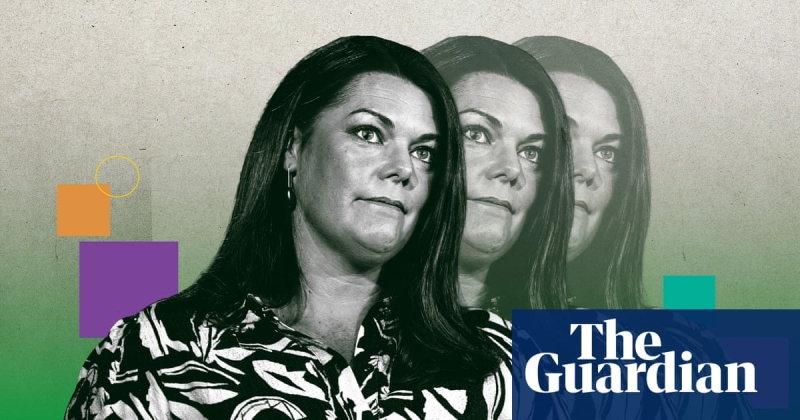Greens senator sees climate crisis and environment as the ‘elephant in the room’ for 2025 election
The Greens are demanding Labor put a moratorium on the destruction of koala habitat and overcome political opponents and mining interests to implement its full suite of promised environment protection laws, in an early attempt to position nature as a federal election issue.
“What we need is the government, the Labor party, to be tougher and to have some guts to stand up and stare them down,” says the party’s environment spokesperson, Sarah Hanson-Young.
While cost-of-living pressures are likely to dominate the federal election, Hanson-Young says it is the Greens’ role to highlight the “elephant in the room”: the climate crisis and the environment.
The minor party spent much of last year campaigning on housing and the war in Gaza, prompting accusations from Labor that it was abandoning its environmental roots.
The pivot coincided with some opinion polls suggesting support for the Greens was in decline just two years after it won a record haul of four lower seats at the 2022 election.
But Hanson-Young has fired back at claims the Greens are “no longer the party of Bob Brown” – a line Labor has repeatedly used to suggest its progressive opponents have abandoned their founding mission.
“It is a very convenient line for people who don’t want to feel the pressure of the environment and climate and the concern within the community,” Hanson-Young says.
Environmental policy emerged as a major political issue in 2024 as Labor tried and failed to advance its nature-positive plan to overhaul federal environmental protection laws.
The environment minister, Tanya Plibersek, was on the verge of a deal with the Greens to support the creation of a federal environment protection agency before the prime minister, Anthony Albanese, pushed it off the agenda after lobbying from miners and the Western Australian government.
The Greens made several concessions in those negotiations, including dropping their demands for a climate trigger in accessing new projects. Hanson-Young says Labor must now budge if it wants to legislate its nature watchdog – a 2022 election promise.
Albanese last week stressed that the government would not “compromise on the values that we’ve put forward” when it came to the nature watchdog, suggesting a resolution this side of the 2025 federal election is unlikely. (Labor needs the Greens’ support in the Senate to pass the legislation, opposed by the Coalition.)
With the fate of the nature-positive plan in limbo, Hanson-Young challenges Labor to stand up to industry and political opponents and press ahead with the full package of promised reforms, including national environmental standards.
The national standards – recommended in Graeme Samuel’s review of the Environment Protection and Biodiversity Conservation Act – are slated for the final stage of the nature positive plan, which has no set timeframe.
On Monday Hanson-Young attended a rally in Coffs Harbour calling for a halt to the logging of native forest that could form part of a proposed “great koala national park”.
“If we’re serious about stopping the extinction of animals like the koala, we have to stop destroying their habitat,” she says.
Campaigning to shield Scott Reef from Woodside’s Browse gas project, renewing the push to give the Great Australian Bight world-heritage status in South Australia and protecting the Maugean skate from salmon farming in Tasmania are shaping up as the Greens’ other major election priorities.
“Mother nature has compromised a lot, and it’s time that the fossil fuel industry, the loggers and big business … sit back and let somebody get in there to protect the environment properly,” Hanson-Young says.
Plibersek’s office declined to comment.





